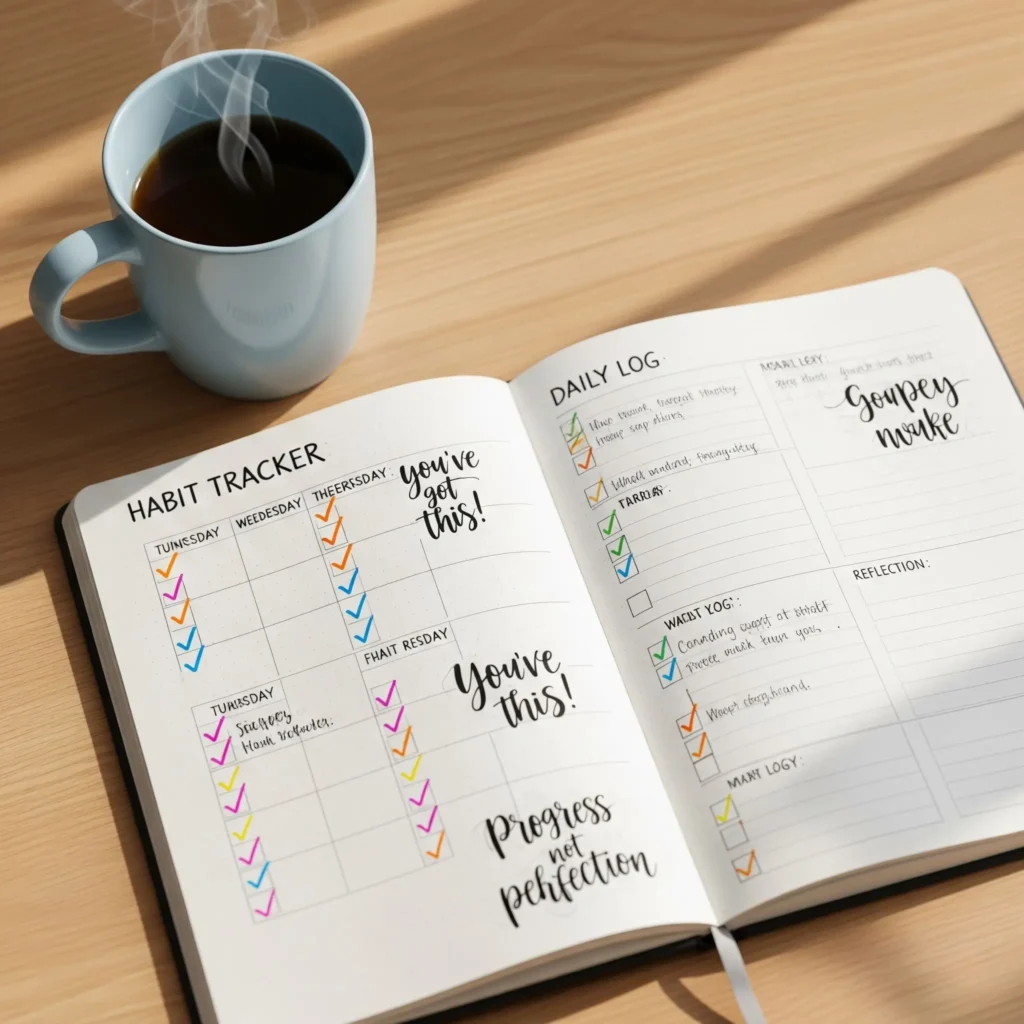⇊Listen to the article
You know the feeling all too well. Your alarm goes off, and you groggily hit snooze, once, twice, maybe even five times, while your brain protests every second. You finally roll out of bed, only to find yourself rushing, skipping breakfast, and feeling completely unprepared for the day. If this sounds familiar, don’t worry, you’re not alone. Many high school students struggle with mornings, especially if they naturally stay up late.
But here’s the good news: a well-structured morning routine can completely transform how you start your day. It can reduce stress, boost your focus, and even enhance your academic performance. In this article, you’ll discover the best morning routine for high school students who hate waking up early, complete with actionable steps, tips, and even energizing breakfast ideas.
Why a Morning Routine Matters for High School Students
You might wonder: why bother with a morning routine? The truth is, starting your day intentionally has a ripple effect that can touch every part of your life.
Improves Focus, Mood, and Academic Performance
A consistent routine helps train your mind to shift from sleep to active mode smoothly. Research shows that teens with structured mornings tend to be more focused in class and complete tasks more efficiently. By dedicating time to yourself before school, you set the tone for productivity and reduce the chaos of rushing around.
Helps Manage Stress and Anxiety
Mornings are a crucial window for mental clarity. When you wake up and immediately face a pile of tasks or a frantic schedule, your stress levels spike. A structured routine allows you to manage your anxiety and approach the day calmly, instead of feeling overwhelmed from the first bell.
Sets a Productive Tone for the Entire Day
Even small habits, like drinking water, stretching, or journaling, signal to your brain that the day is starting on a positive note. Over time, this consistency fosters better time management, stronger focus, and more confidence in your abilities.
Morning Routines and Mental Health
Having a predictable morning routine supports mental health in several ways:
Morning Routines and Academic Success
Early focus hours are particularly valuable for high school students. Studies suggest that students who engage in morning planning or reading before school performance on tests. Starting the day with structure can directly impact your academic success.
Challenges for Teens Who Hate Waking Up Early

Understanding why mornings feel impossible for some teens is the first step to overcoming the struggle.
Biological Factors
Your natural sleep-wake cycle, or circadian rhythm, shifts during adolescence, making it harder to fall asleep early and wake up early. This isn’t laziness, it’s biology. Respecting your sleep needs while adjusting gradually is key.
Common Mistakes
Many teens unintentionally sabotage their mornings:
- Staying up late scrolling on your phone or watching shows.
- Skipping breakfast or grabbing unhealthy snacks.
- Rushing without a plan, which increases stress and lowers energy.
Tips to Overcome These Challenges:
- Set a strict bedtime and minimize screen time 30 minutes before sleep.
- Prepare school items the night before.
- Keep a consistent wake-up time, even on weekends.
Step-by-Step Morning Routine for Night-Owls

Here’s a practical, step-by-step morning routine designed for teens who hate waking up early. Each step takes into account your need for gradual adjustment and energy.
Step 1: Gradual Wake-Up Adjustment
If mornings feel impossible, don’t force an abrupt change.
- Start by waking up just 10–15 minutes earlier than usual.
- Gradually move your wake-up time earlier over a few weeks.
- Use a natural light alarm or music you enjoy to make waking up easier.
Step 2: Hydrate Immediately
Your body loses water while you sleep, so start the day by drinking a glass of water.
Benefits:
- Rehydrates your system and kickstarts metabolism.
- Helps you feel more alert.
- Supports digestion and energy levels throughout the morning.
Step 3: Quick Stretch or Movement
Physical activity, even for 5–10 minutes, can shake off grogginess.
- Stretch your arms, legs, and back.
- Do light exercises such as jumping jacks, yoga, or a short walk.
- Improves circulation and boosts mood.
Step 4: Energizing Breakfast
Breakfast is non-negotiable for energy and concentration. Here’s a simple table of quick, nutritious breakfast options:
| Recipe Name | Ingredients | Prep Time | Notes |
|---|---|---|---|
| Peanut Butter Toast | Bread, Peanut Butter, Banana | 5 min | High protein + fiber |
| Yogurt Parfait | Yogurt, Granola, Berries | 5 min | Quick and nutritious |
| Smoothie Energy Boost | Banana, Spinach, Milk, Honey | 5 min | Can be made ahead |
These options are designed to be fast, tasty, and packed with nutrients that fuel your brain and body.
Step 5: Morning Mindset
Take 5 minutes to set your intentions for the day.
- Journal your thoughts or write a short to-do list.
- Practice affirmations to boost confidence.
- Try a 5-minute meditation to reduce stress and improve focus.
Tips for Making the Routine Stick

Consistency is key, but building a routine takes effort. Here are tips to make it stick:
- Prepare your school bag, clothes, and breakfast ingredients the night before.
- Place your alarm across the room to avoid hitting snooze.
- Avoid screens for at least 30 minutes after waking to prevent distraction.
Tracking Progress
- Use a habit tracker or app to monitor your routine.
- Reward yourself for consistency, even small wins, to reinforce positive behavior.
FAQ – Morning Routine for High School Students Who Hate Waking Up Early
Q1: How can I wake up early if I’m a night owl?
Gradually adjust your wake-up time, maintain a consistent bedtime, and minimize screen exposure before sleep. Small steps lead to sustainable results.
Q2: What’s the best breakfast for energy?
Opt for protein-rich, nutrient-dense options like peanut butter toast, yogurt parfait, or smoothies. These fuel your brain and stabilize blood sugar.
Q3: How long should my morning routine be?
A 20–45 minute routine is ideal, depending on your prep time and school schedule. Start small and expand gradually.
Q4: Can I still go to bed late and wake up early?
It’s possible occasionally, but chronic sleep deprivation harms focus, mood, and health. Prioritize at least 7–8 hours of sleep per night.
Conclusion
A structured morning routine isn’t just about waking up early; it’s about creating a foundation for your entire day. By hydrating, moving your body, eating a nutritious breakfast, and setting your mindset, you can transform mornings from stressful chaos to calm, productive beginnings.
Remember, even night owls can build a morning routine that works for them. Start with one step tomorrow, and gradually implement the full routine. Soon, you’ll find that mornings become a time of clarity, energy, and readiness for whatever your high school day throws at you.
Your mornings don’t have to be a battle; you can make them your secret weapon for success. ➤


